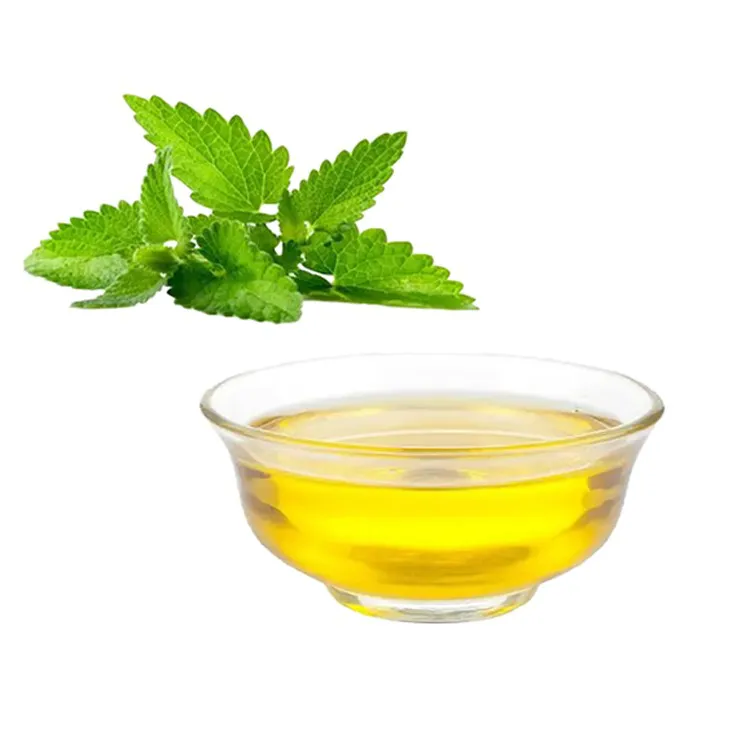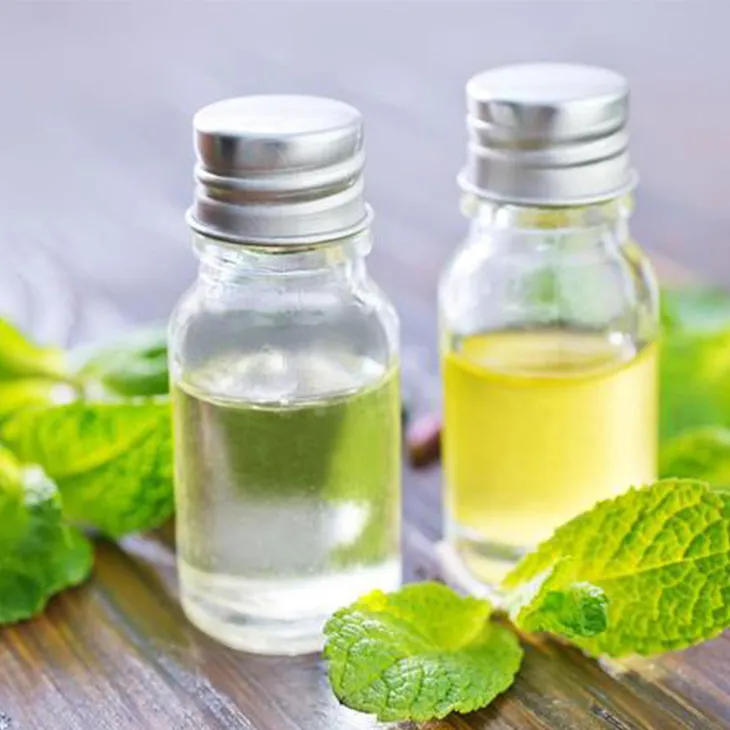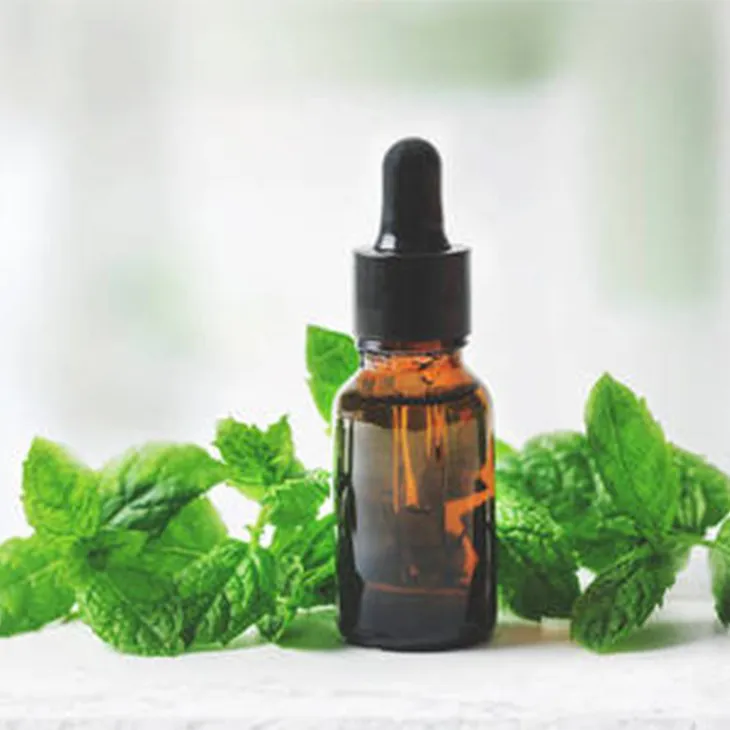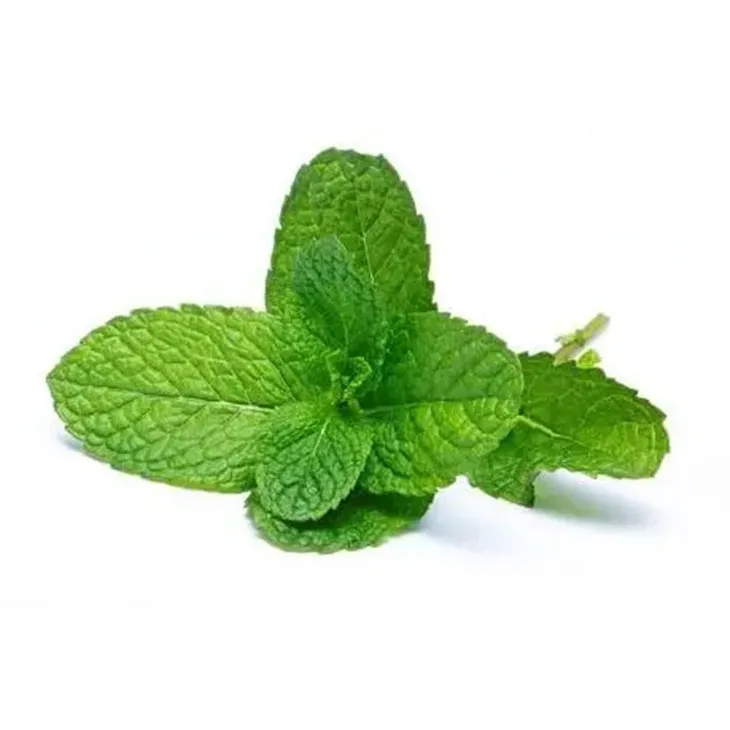- 0086-571-85302990
- sales@greenskybio.com
Bulk purchase of peppermint oil.
2024-12-01

1. Introduction
Peppermint Oil has been highly sought - after for its versatile uses. It is widely used in the food industry for flavoring, in the cosmetic industry for its refreshing and soothing properties, and in the pharmaceutical industry for its potential health benefits. Given its popularity, many businesses are interested in making a batch purchase of Peppermint Oil. However, this is not a straightforward process and requires careful consideration of various factors. In this article, we will analyze the process of batch purchasing Peppermint Oil in detail.

2. Market Trends
2.1 Supply and Demand Dynamics
Understanding the supply and demand dynamics in the peppermint oil market can help buyers make informed decisions. The demand for peppermint oil has been on the rise in recent years. One of the main drivers is the increasing consumer preference towards natural products. Consumers are more aware of the potential side effects of synthetic products and are therefore turning to natural alternatives. Peppermint oil, with its natural origin and multiple benefits, has become a popular choice. For example, in the food and beverage industry, the demand for peppermint - flavored products has increased, leading to a higher demand for peppermint oil as a flavoring agent.
2.2 Price Fluctuations
Price is another important aspect of market trends. The price of peppermint oil can be influenced by various factors such as crop yields, weather conditions, and global economic situations. In years when the peppermint crop is abundant, the price may be relatively lower. However, if there are adverse weather conditions that affect the growth of peppermint plants, such as drought or floods, the supply may be reduced, leading to an increase in price. Additionally, changes in global economic conditions can also impact the price. For instance, during a recession, the demand for non - essential products, including those containing peppermint oil, may decrease, which could potentially lead to a drop in price.
3. Supplier Selection
3.1 Local Suppliers
Local suppliers may offer several advantages. One of the main benefits is that they can provide fresher products. Since the supply chain is shorter, the time between harvesting the peppermint and delivering the oil to the buyer is reduced. This can result in a product with higher quality and a more intense flavor. For example, a local peppermint oil producer in a rural area may harvest the peppermint plants and extract the oil on - site, ensuring that the product is as fresh as possible.- Another advantage of local suppliers is that they may be more flexible in terms of quantity. They can often accommodate smaller batch purchases, which can be beneficial for small - scale businesses or start - ups.
- Local suppliers may also have a better understanding of the local market conditions and consumer preferences. This can be useful for buyers who are targeting a specific local market.
3.2 International Distributors
International distributors, on the other hand, have their own set of advantages. One of the most significant is the wider range of products they offer. They may have access to different varieties of peppermint oil from various regions around the world. This can be appealing to buyers who are looking for a specific type of peppermint oil with unique characteristics.- Due to their large - scale operations, international distributors may be able to offer lower prices. They can take advantage of economies of scale, buying in large quantities from different sources and distributing to a wide customer base. This can result in cost savings that can be passed on to the buyers.
- International distributors also often have more advanced quality control and packaging facilities. This can ensure that the peppermint oil is of high quality and meets international standards.

4. Quality Considerations
4.1 Purity and Composition
When making a batch purchase of peppermint oil, it is crucial to consider the purity and composition of the product. High - quality peppermint oil should have a high percentage of the active ingredients, such as menthol and menthone. The purity of the oil can affect its efficacy in various applications. For example, in the pharmaceutical industry, a less pure peppermint oil may not have the same therapeutic effects.- Buyers should also be aware of any potential contaminants in the peppermint oil. This could include pesticides, heavy metals, or other impurities that may be present due to improper farming or extraction methods.
- Testing and certification can help ensure the quality of the peppermint oil. Reputable suppliers should be able to provide certificates of analysis that detail the composition and purity of the product.
4.2 Storage and Shelf - Life
Peppermint oil has a certain shelf - life, and proper storage is essential to maintain its quality. The oil should be stored in a cool, dark place to prevent degradation. Exposure to sunlight, heat, or air can cause the oil to oxidize and lose its potency.- Buyers should also consider the packaging of the peppermint oil. Dark - colored glass bottles are often preferred as they can protect the oil from light. Sealed containers can prevent air from entering and spoiling the oil.
- When making a batch purchase, it is important to check the expiration date or the recommended shelf - life of the product. Buying a large quantity of peppermint oil that has a short shelf - life may result in waste if it cannot be used in time.

5. Legal and Regulatory Aspects
5.1 Production Regulations
There are certain regulations regarding the production of peppermint oil in different countries. These regulations may cover aspects such as farming practices, use of pesticides, and extraction methods. For example, in some countries, there are strict limits on the use of certain pesticides in peppermint farming to ensure that the final product is free from harmful residues.- Some regions may also have regulations regarding the type of extraction methods that can be used. For instance, certain traditional or organic extraction methods may be preferred or required for products that are labeled as "organic" or "natural".
- Buyers need to be aware of these production regulations when choosing a supplier. A supplier that does not comply with the relevant regulations may be at risk of legal action, and the products they supply may not meet the required quality or safety standards.
5.2 Labeling Requirements
Labeling is another important aspect of the legal and regulatory framework. Peppermint oil products should be clearly labeled with information such as the ingredients, origin, and any potential allergens. In some countries, there are specific requirements for the font size, language, and placement of the label information.- The label should also indicate the purity or concentration of the peppermint oil. This information is crucial for buyers who need to know the exact composition of the product for their intended applications.
- If the peppermint oil is intended for use in the food, cosmetic, or pharmaceutical industry, there may be additional labeling requirements specific to those industries. For example, in the food industry, the label may need to include information about the food - grade status of the product.
5.3 Export/Import Regulations
When it comes to international trade, there are export/import regulations that need to be considered. Different countries may have different tariffs, quotas, or restrictions on the import and export of peppermint oil. For example, some countries may impose high tariffs on imported peppermint oil to protect their domestic producers.- There may also be phytosanitary requirements for importing peppermint oil. These requirements are in place to prevent the spread of pests and diseases. The peppermint oil may need to be accompanied by a phytosanitary certificate issued by the exporting country.
- Buyers involved in international trade need to be well - informed about these export/import regulations to avoid any legal issues during the batch purchase process. They may need to work with customs brokers or international trade consultants to ensure compliance.
6. Negotiating the Purchase
6.1 Price Negotiation
Once a potential supplier has been identified, the next step is to negotiate the price. Buyers should research the market price of peppermint oil to have a basis for negotiation. They can compare prices from different suppliers and use this information to their advantage.- When negotiating the price, buyers can also consider factors such as the quantity they are purchasing, the payment terms, and the delivery schedule. For example, if they are making a large - scale batch purchase, they may be able to negotiate a lower price per unit.
- It is also important to consider the long - term relationship with the supplier. A good relationship can lead to better prices and more favorable terms in the future. Therefore, the negotiation should be a win - win situation for both parties.
6.2 Contract Terms
The purchase contract should clearly define the terms and conditions of the transaction. This includes details such as the quantity of peppermint oil to be purchased, the price, the delivery date, and the quality standards.- The contract should also specify the payment terms, such as whether it is a cash - on - delivery (COD) or a credit - based payment. In case of a credit - based payment, the terms of credit, including the interest rate and the repayment schedule, should be clearly stated.
- Liability and dispute resolution mechanisms should also be included in the contract. In case of any quality issues or delivery delays, it is important to have a clear process for resolving disputes.
7. Conclusion
Batch purchasing peppermint oil is a complex process that requires careful consideration of various factors. Market trends, supplier selection, quality considerations, legal and regulatory aspects, and negotiation of the purchase all play important roles. By understanding these factors and taking the necessary steps, buyers can make a successful batch purchase of peppermint oil that meets their needs in terms of quality, quantity, and price.
FAQ:
Q1: What are the main market trends affecting the batch purchase of peppermint oil?
The main market trend is the change in consumer preferences towards natural products, which drives up the demand for high - quality peppermint oil. Understanding the supply and demand dynamics is crucial for batch purchasers as it helps them make informed decisions.
Q2: How do local suppliers of peppermint oil compare to international ones?
Local suppliers may offer fresher products with shorter supply chains. International suppliers, on the other hand, might have a wider range of products and potentially lower prices due to economies of scale. So, each has its own advantages depending on the buyer's specific requirements.
Q3: What legal aspects should be considered when batch purchasing peppermint oil?
There are regulations regarding the production, labeling, and export/import of peppermint oil in different countries. Buyers need to be aware of these regulations to avoid any legal issues during the batch purchase process.
Q4: How can buyers ensure the quality of peppermint oil when making a batch purchase?
Buyers can research the market trends to understand what high - quality peppermint oil should be like. Also, they can compare different suppliers, both local and international, and look at their reputations. Checking for proper certifications related to the production of peppermint oil can also be a way to ensure quality.
Q5: What factors can influence the price of peppermint oil in batch purchase?
The type of supplier (local or international) can influence the price as international suppliers may have economies of scale leading to lower prices. Also, the quality of the peppermint oil, market demand, and production costs all play a role in determining the price during batch purchase.
Related literature
- The Global Peppermint Oil Market: Trends and Forecasts"
- "Peppermint Oil Production: Regulations and Quality Standards"
- "Supplier Selection in the Peppermint Oil Industry"
- ▶ Hesperidin
- ▶ citrus bioflavonoids
- ▶ plant extract
- ▶ lycopene
- ▶ Diosmin
- ▶ Grape seed extract
- ▶ Sea buckthorn Juice Powder
- ▶ Beetroot powder
- ▶ Hops Extract
- ▶ Artichoke Extract
- ▶ Reishi mushroom extract
- ▶ Astaxanthin
- ▶ Green Tea Extract
- ▶ Curcumin Extract
- ▶ Horse Chestnut Extract
- ▶ Other Problems
- ▶ Boswellia Serrata Extract
- ▶ Resveratrol Extract
- ▶ Marigold Extract
- ▶ Grape Leaf Extract
- ▶ blog3
- ▶ blog4
-
The best lemon juice powder in nature.
2024-12-01
-
Organic Vitamin K2 Powder Suppliers
2024-12-01
-
Bulk purchase of L - tyrosine.
2024-12-01
-
Vitamin K2 Manufacturers
2024-12-01
-
100% Pure Natural Rutin.
2024-12-01
-
Chinese Citrus Bioflavonoid Suppliers.
2024-12-01
-
Quercetin
2024-12-01
-
Chaste Berry Extract
2024-12-01
-
Curcumin Extract
2024-12-01
-
Nettle leaf extract
2024-12-01
-
Eyebright Extract
2024-12-01
-
Lavender Extract
2024-12-01
-
Curcuma Longa Extract
2024-12-01
-
Chia Seed Powder
2024-12-01
-
Citrus Aurantii Extract
2024-12-01
-
Green Tea Extract
2024-12-01





















